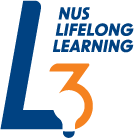Objectives
This course covers advanced methods for the design, conduct, analysis and interpretation of epidemiologic studies. The main focus is on analytical studies that aim to identify risk factors for diseases particularly case-control and cohort studies. Topics include causal inference, study design, methods of handling confounding and identifying effect modification, measurement error and information bias, selection bias, lifestyle and molecular epidemiology, and meta-analysis.
Upon completion of this course, you will be able to:
1. Understand the strengths, limitations, and principles of different study designs including retrospective casecontrol, nested case-control, case-cohort, cohort, cross-sectional, and ecological studies and randomised controlled trials
2. Identify and interpret effect modification
3. Identify potential sources of selection and information bias, reverse causation and regression to the mean, judge how this may affect results, and understand how to control bias by appropriate study design
4. Identify potential sources of confounding and understand how to address confounding in the design and analysis of epidemiological studies
5. Explain commonly used considerations for causal inference and models of causality
6. Understand the concepts ‘validity’ and ‘precision’, ‘random’ and ‘systematic measurement error’, ‘differential’ and ‘non-differential misclassification’, and the use of validation and reproducibility studies for epidemiological research
7. Understand the general principles and strengths and limitations of systematic reviews and meta-analyses and be able to judge when these are useful
8. Understand the different steps of conducting a systematic review, causes of publication bias, and the importance of evaluating heterogeneity in study results and be able to interpret the main statistical measures and graphs used in meta-analyses
9. Understand major considerations specific to the design and interpretation of molecular epidemiology studies.
10. Judge the quality of articles on epidemiological studies and be able to interpret from these articles


